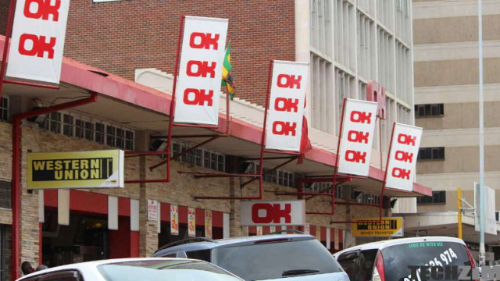OK Zimbabwe Plans Asset Sales to Raise $10.5M Amid Cash Crunch

TLDR
- OK Zimbabwe plans to sell several core assets—including four supermarkets—to raise $10.5 million in a bid to resolve a mounting liquidity crisis
- The asset sales, disclosed in a cautionary statement and circular to shareholders, are part of a broader restructuring effort
- The company is facing acute financial distress with debts reaching $30 million by February 28, 2025
OK Zimbabwe Limited, a Zimbabwe Stock Exchange-listed retailer, plans to sell several core assets—including four supermarkets—to raise $10.5 million in a bid to resolve a mounting liquidity crisis.
The asset sales, disclosed in a cautionary statement and circular to shareholders, are part of a broader restructuring effort. Properties earmarked for disposal include OK Mbuya Nehanda in Harare, OK Gweru, OK Glen View, OK Malvern, a warehouse, and two vacant commercial stands.
The company is facing acute financial distress with debts reaching $30 million by February 28, 2025, and insufficient cash flows to meet operating needs. According to the company secretary, proceeds will be used to restock shelves and repay creditors.
The board said the capital injection is aimed at stabilizing operations and preventing further decline. Shareholders will vote on the plan in the coming weeks.
Daba is Africa's leading investment platform for private and public markets. Download here
Key Takeaways
OK Zimbabwe’s planned asset disposals highlight the financial stress facing traditional retailers in hyperinflationary environments. Once dominant in the local market, the company has struggled with rising input costs, currency volatility, and intensifying competition from leaner players. Its move to sell high-value properties signals a shift from asset-heavy models to more flexible operations. While $10.5 million offers short-term relief, the company remains burdened by a $30 million debt load, and success depends on executing its restocking plan without further liquidity gaps. The decision to hold a shareholder vote suggests an attempt at transparency and governance but also underscores urgency. More broadly, OK Zimbabwe’s crisis is a case study of how macroeconomic instability can weaken even long-established market leaders—and how monetizing fixed assets becomes a last-resort survival tool in Africa’s high-risk retail environments.

Next Frontier
Stay up to date on major news and events in African markets. Delivered weekly.
Pulse54
UDeep-dives into what’s old and new in Africa’s investment landscape. Delivered twice monthly.
Events
Sign up to stay informed about our regular webinars, product launches, and exhibitions.




